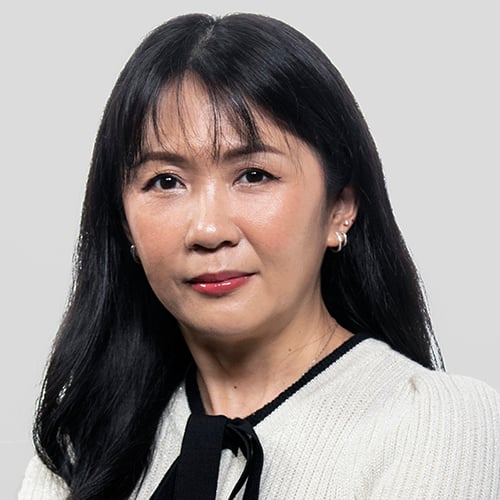Man does not live by bread alone. One would think that since Covid-19 has played havoc with almost all businesses, those that have little to do with meeting basic necessities such as arts and culture are most certain to suffer from the fallout of the pandemic: people have become more cautious about their spending and buying “less important” things will have to wait until the economy gets better.
That’s true – up to a point. The US$64 billion art market, just like the rest of the luxury segment, has seen a significant decline in demand. But a new survey by Art Basel and UBS finds that 92% of collectors across three markets – Hong Kong, the United States and the United Kingdom – have purchased at least one work of art so far this year, and the value of spending on art has been at a relatively high level.
A majority (56%) of collectors spent over US$100,000 in the first half of 2020, including 16% spending over US$1 million. Hong Kong collectors accounted for 8% of those who spent at least US$1 million in the three markets.
The mid-year survey covered responses from 795 galleries in 60 different markets, and 360 collectors from the US, the UK and Hong Kong. The survey results are discussed in a report, The Impact of COVID-19 on the Gallery Sector, written by renowned cultural economist Clare McAndrew, who is the founder of research and consulting firm Arts Economics.
Lockdowns, social distancing and other pandemic-related restrictions have reduced the number of visits to galleries and other art venues. Which is why online sales accounted for 37% of total sales in the art segment in the first half of the year, up from 10% in 2019, according to the survey. As dealers reported using a range of online strategies to maintain liquidity and relationships, collectors in Hong Kong tended to access galleries more online while those from other markets favoured email, phone or physical premises.
Still, total sales shrank by an average of 36% in the first six months of the year as nearly all galleries closed their premises between January and July 2020, mirroring sales across luxury goods industries. One-third of galleries in the three markets downsized as a result, losing an average of four employees, with around half of the job losses being full-time.
Gallery owners, however, note an acute awareness and strong drive by some collectors to support the arts. In the first half of 2020, most collectors across all regions purchased a work of art, with 6% purchasing ten or more. Of those surveyed, 59% say the pandemic has increased their interest in collecting, with 31% saying it has done so significantly. Conversely, 27% say Covid-19 has had no effect, while just 14% say it has diminished their interest.
While about a third of collectors surveyed prefer to buy artists they are familiar with or bought before, 44% of all collectors – the majority of which are from Hong Kong – are focused on artists they know while remaining open to discovering new artists. In addition, half of all collectors from Hong Kong are focused on interacting with new and existing galleries, the highest compared with other markets.
Millennial collectors
The survey also reveals differences in behaviour across generations. Only 3% of millennial collectors have not purchased an artwork in 2020, versus over one-third of boomers. The millennial segment also has the largest share of high spenders, with 17% having spent over US$1 million in the six-month period, versus just 4% of boomers. Nearly all millennial collectors and most Gen X collectors have been actively working with galleries during the crisis, while 40% of boomers say they are not actively working with a gallery at the moment.
Historically, the art market has been slow to embrace e-commerce. However, findings indicate that this has changed in the face of the crisis. Of the collectors surveyed, 85% or more had visited online viewing rooms for galleries or fairs, with less than half of them having used them to finalize the purchase of an artwork. The majority (66%) of galleries believe online sales in the gallery sector will further increase in 2021.
In fact, many collectors say one of the welcome outcomes of the crisis is the shift towards greater price transparency through online viewing rooms and digital platforms: 81% feel it is important or essential to have a price posted when they browse works of art for sale online, and some also feel this is important to maintain in sales in the future, whether online or off.
During the first half of 2020, one-third of collectors chose to only buy works by artists they were familiar with, or had bought before – a trend which, if continued, could reinforce the status quo, making it harder for younger artists and galleries to become established. Significant differences, however, were found between generations: boomers are more likely to be looking for new artists, with 35% seeking new discoveries – more than twice the share of millennial collectors.
Though online platforms are widely used, collectors indicate that they are not necessarily their preferred means to interact with the art market. Asked how they prefer to view art, 70% opt for attending a physical or offline exhibition or fair, versus 30% who prefer to use online viewing rooms or other online platforms. Despite ongoing restrictions on travel, most collectors (82%) are still actively planning to attend exhibitions, art fairs and events sometime in the next 12 months.
Christl Novakovic, chief executive of UBS Europe SE and head of wealth management in Europe, comments: “From our conversations with collectors it is apparent that there is a continued drive to support the market. Digital platforms can increase price transparency and broaden the base of new buyers at different price levels. Strengthening this globalized community is essential for the health of the market in the future.”









